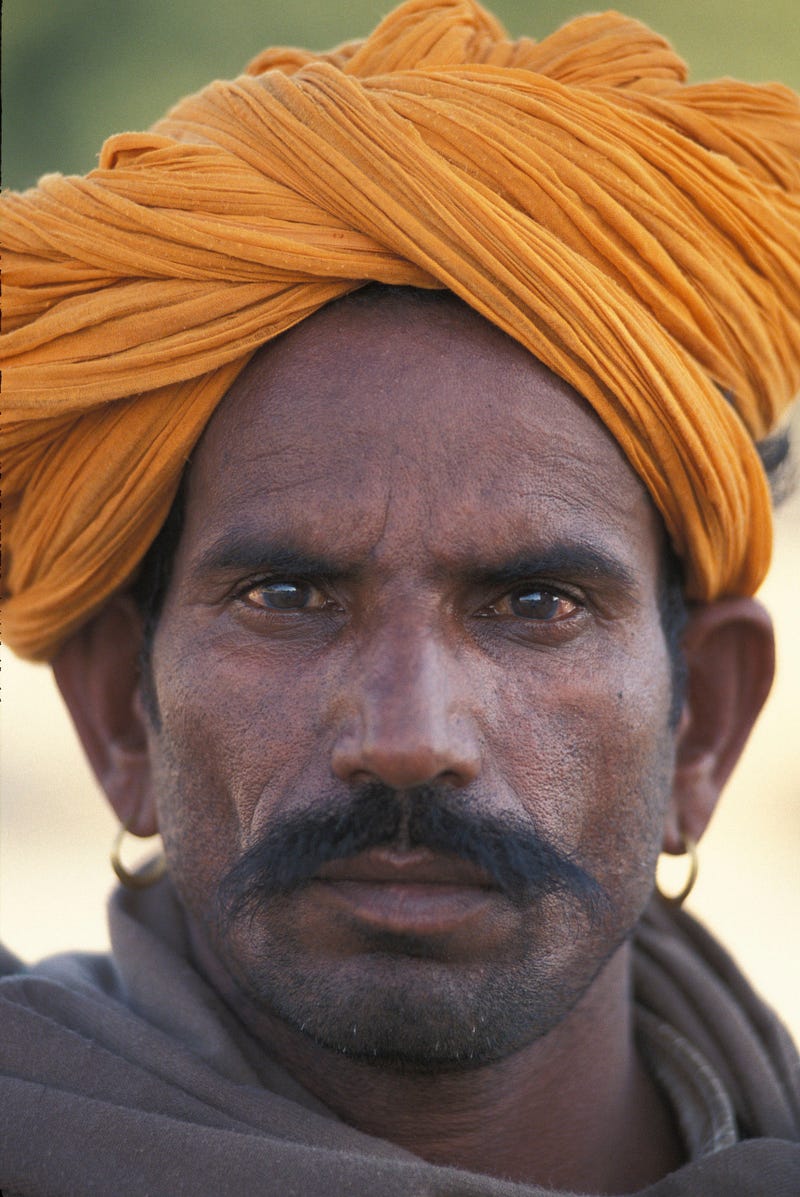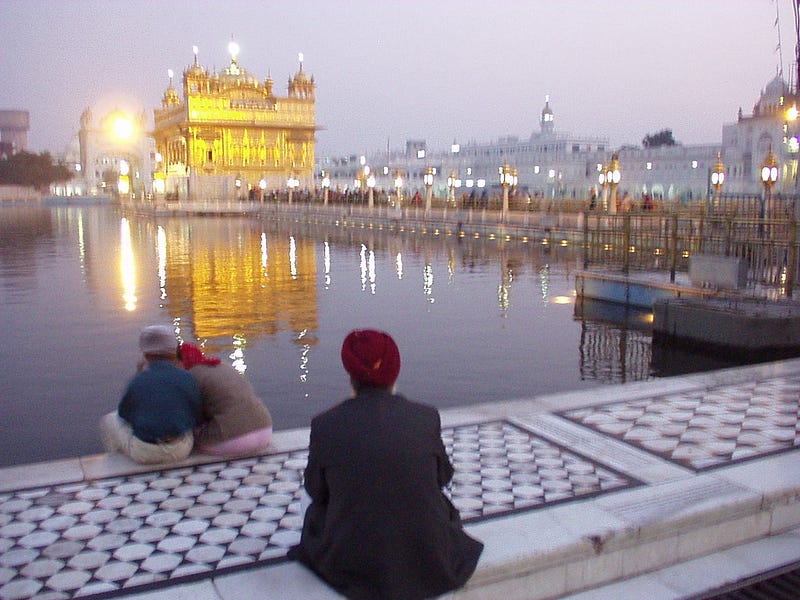So there’s this guy who yelled “get out of my country” in Kansas, before firing on two Indians, killing one of them, Srinivas Kuchibhotla, an engineer from Hyderabad. The Washington Post reported that the father of the other Indian, the injured one, “pointed to the election of President Trump, who has routinely described a threat posed to Americans from people outside the country’s borders, and pleaded with parents in India ‘not to send their children to the United States.’” Maybe that’s the correct call for right now, I dunno. Parents of India will have to decide for themselves.
What I can tell you, though, is that I think parents in the United States should think about sending their children to India. In 2005–2006, I spent six months traveling around India and it was one of the most pivotal experiences of my life. By now I’ve been to probably a couple dozen countries, and so every now and again someone will ask me “What was the best or most interesting place you’ve traveled?” The answer is always India.
India is politically interesting: it has a wide range of cultures and religions, but is a functional democracy. If Ladakhis and Tamils can figure out how to participate in a government together, it seems like people from California and Kansas should be able to as well. India’s people are super-welcoming, and very similar to the United States in a lot of ways (we’re both former British colonies after all), but very different in a lot of others. The diversity of cultures you can see, all on the same railway system, is much greater than in Europe, and the castles are larger and more exotic. The food is amazing, extra amazingness if you’re a vegetarian. Walking down a given street in Mumbai, Jodhpur, or Kolkata is more entertaining than any television show: there are so many people, colors, activities, and animals (Mumbai and Kolkata: elephants and brahma bulls; Jodhpur: camels).

Recently this famous Mark Twain quote has been drifting through my head frequently: “Travel is fatal to prejudice, bigotry, and narrow-mindedness, and many of our people need it sorely on these accounts. Broad, wholesome, charitable views of men and things cannot be acquired by vegetating in one little corner of the earth all one’s lifetime.” It’s perhaps a bit saccharine . . . but as a kid from a little corner of Indiana who had his mind blown by India, I can also tell you it is true.
I so wish more Americans would get out of their country for perspective. That might come across as elitist (“not everybody has the luxury to head off to the other side of the world for six months”), but it’s not that much harder to afford than a semester of college; the hard part is finding the time. The big expense is the plane ticket and after that, a lot of countries, including India, are pretty affordable. United States dollars go a long way elsewhere. I hadn’t really thought about it in these terms until now, but I hope for my daughter to go visit India with almost the same degree that I aspire for her to go to college.
My first response to hate of the shooter in Kansas is condemnation, like with any hate crime. I have realized recently that when it’s an Indian, though, the reaction is more visceral for me, a strong, immediate gut reaction of rage and sadness. This is also the case when I read stories of Sikhs receiving hate or prejudice on account of their turbans. I don’t really have any close friends who are Sikh, but I can tell you that of all the places of worship I’ve been to, Sikh temples are the best. Because of the practice of langar, they’re always like “Come in! Have something to eat!”, and in the temple at Amritsar, which ought to be one of the wonders of the world, I also stayed in free accommodations they have for visitors. So whenever I see in the news that a Sikh that got beaten up by crazy bigots (recent example in Richmond, California, a few miles from me), a little voice in my head says “He’s one of the *free food people*, fools! Leave him the fuck alone!” The quickest way to a man’s heart is through his stomach; maybe it is a quick route to the end of prejudice as well.

I feel guilty that I didn’t have this same immediate emotional reaction to, for example, Travon Martin or Eric Garner being killed. I mean, I know intellectually that those killings are deeply wrong, but the flavors of anger and sadness they brought were cooler and more subdued. Or saying “I feel guilty” is perhaps not the right phrase; you can’t create an emotion you don’t have. Perhaps what I feel is more like a recognition that reaction isn’t the way it should be, and that my wrong emotional reaction is just a reflection of the wrongness of the social structure of the United States. It is the bizarre nature of racism in America, that 150 years after the end of slavery, I’ve managed to live forty years in America and have more personal contacts with Indians (1.25% of the US population) that Black people (13.2% of the population). That’s certainly not a conscious choice on my part; it’s the history of redlining, the end of affirmative action, the economic oppression that makes the racial divide also a class divide. At least my experience in India makes me cognizant of the difference, and how I ought to feel.
I want to close out by counterbalancing crazy Kansas man’s hate with my own love here: I love India, I love its people, and I hope our people keep making the trek back and forth (including me, ten years is too long). Last year I came across the question “What Places Are Worth All The Hype?” on Quora, and astonishingly no one had yet written about India. So I wrote one. Thus far it’s gotten 4200 upvotes, which makes it clearly the most popular thing I’ve ever written on the Internet. If you want more convincing that you, or your children, should go to India, take a look: it has lots more pictures and reasons to go.
Leave a Reply